China has the world’s highest level of government restrictions on religion, and Nigeria has the highest level of social hostilities toward religion, the Pew Research Center revealed in a report released Tuesday.
According to Pew, government restrictions on religion include “laws, policies and actions that regulate and limit religious beliefs and practices,” as well as “policies that single out certain religious groups or ban certain practices.”
Importantly, such restrictions also entail “bureaucratic rules that require religious groups to register to receive benefits.”
Tuesday’s annual report, the fourteenth in a series begun in 2007, analyzed the data from 2021, the latest year for which such data is available, and found that China continues to restrict the activities of religious groups that are deemed a threat to the Chinese Communist Party (CCP).
The study links to an international religious freedom report by the U.S. Department of State, which notes that the leadership of the CCP recognizes only five official religions: Buddhism, Taoism, Islam, Protestantism, and Catholicism.
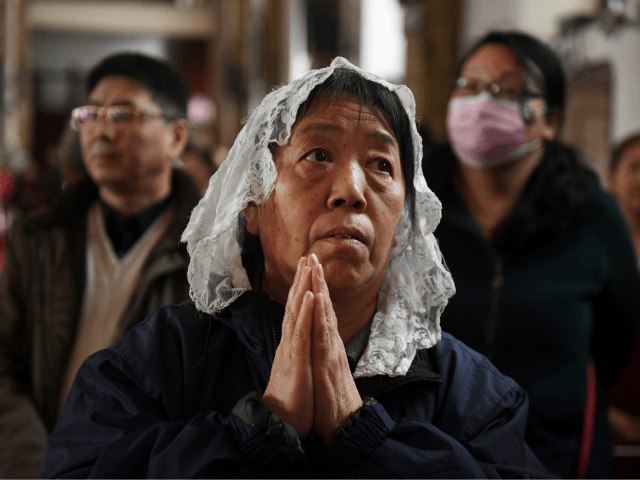
Catholic worshippers attend a Mass on Holy Thursday at Beijing’s government-sanctioned South Cathedral on March 29, 2018. (GREG BAKER/AFP/Getty Images)
Moreover, only religious groups belonging to one of the five state-sanctioned “patriotic religious associations” representing these religions are permitted to register with the government and officially allowed to hold worship services.
CCP members and members of the armed forces are obliged to be atheists and are forbidden from engaging in any religious practices. Minors — those under the age of 18 — are effectively barred from participating in most religious activities or receiving religious education.
Aid to the Church in Need (ACN) issued a similar report the same year, noting that Chinese authorities had significantly intensified their crackdown on all religious minorities under the leadership of Xi Jinping.
Policymaking in China “is more centralized, repression is more intense and wide-spread, and technology is being refined for the creation of a surveillance state,” ACN declared in its Religious Freedom in the World Report 2021, an 818-page compilation.
“Freedom of religion in China is currently subjected to the most serious crackdown since the Cultural Revolution,” it noted.
“Under the current leadership of Xi Jinping, the prospects for religious freedom — and human rights more broadly — are becoming ever-more bleak,” the report stated. “With no meaningful political liberalization in sight, repression and persecution will continue and, with the tools of modern technology, become even more intrusive and pervasive.”
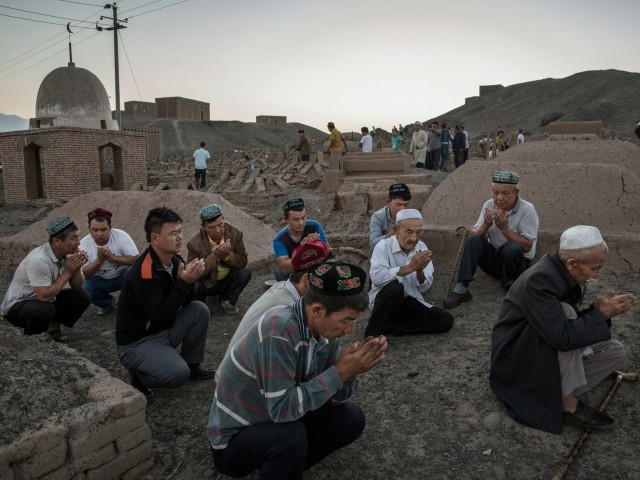
Uyghur men perform prayers for ancestors at a cemetery before the Corban Festival on September 11, 2016, in Turpan County in the far western Xinjiang province, China. (Kevin Frayer/Getty Images)
The case of Nigeria is different, Pew noted in Tuesday’s report, because religion there suffers not from government restrictions but from social hostilities.
Social hostilities include “actions by private individuals or groups that target religious groups,” as well as “actions by groups or individuals who use religion to restrict others,” Pew stated.
These hostilities are manifested in “religion-related harassment, mob violence, terrorism/militant activity, and hostilities over religious conversions or the wearing of religious symbols and clothing,” the report said.
In just the first four months of 2021, thousands of Christians in Nigeria were kidnapped and hundreds killed as part of a dangerous “escalation” in targeted violence against Nigeria’s Christian population by militant Islamists.
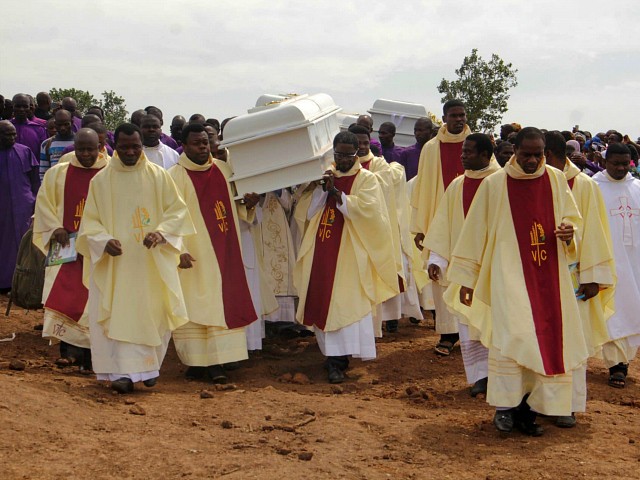
Nigerian clergymen carry white coffins containing the bodies of priests allegedly killed by Fulani herdsmen on May 22, 2018. (EMMY IBU/AFP/Getty Images)
The Nigerian-based Int’l Society for Civil Liberties & Rule of Law (Intersociety), a human rights group, reported that jihadists had massacred 1,470 Christians in the first four months of 2021 and abducted more than 2,200.
The 1,470 Christian deaths in just four months exceeded the total number of Christians killed in 2019, estimated at 1,350, the report said.
The World Watch List 2021, published by Open Doors, found that “more Christians are murdered for their faith in Nigeria than in any other country,” making Nigeria the most dangerous country in the world for Christians to live.
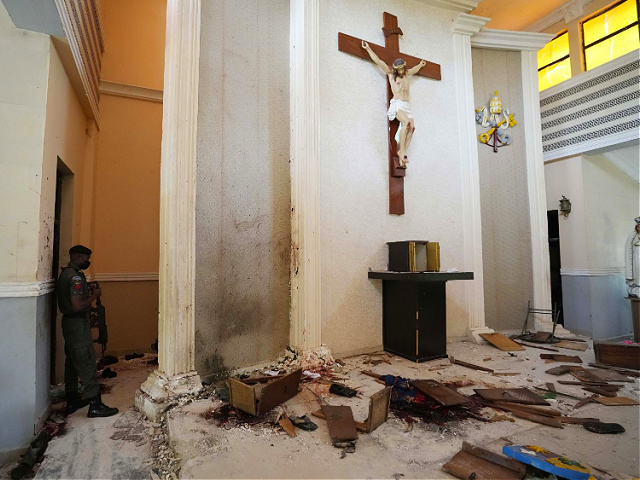
A police officer stands guard inside the St. Francis Catholic Church a day after an attack that targeted worshipers in Owo, Nigeria, on June 6, 2022. (AP Photo/Sunday Alamba)
In Tuesday’s report, Pew revealed that Christians face more hostility than any other religious group and were harassed by governments or private actors in 160 countries in 2021, significantly more than followers of any other religion.
Since the beginning of the study, Christians “generally have faced harassment in a larger number of countries than any other group,” it stated.
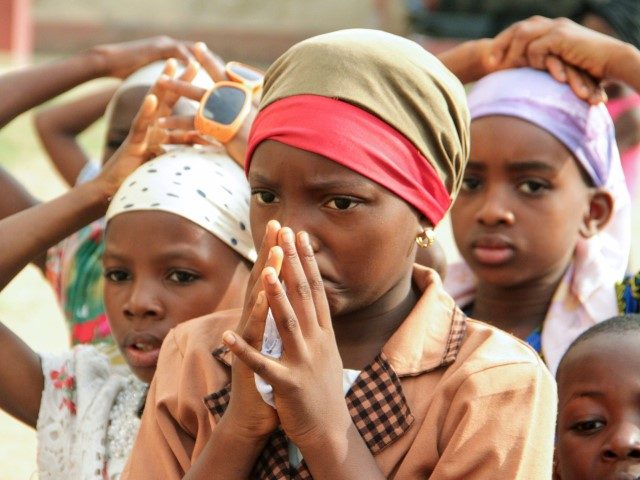
COMMENTS
Please let us know if you're having issues with commenting.